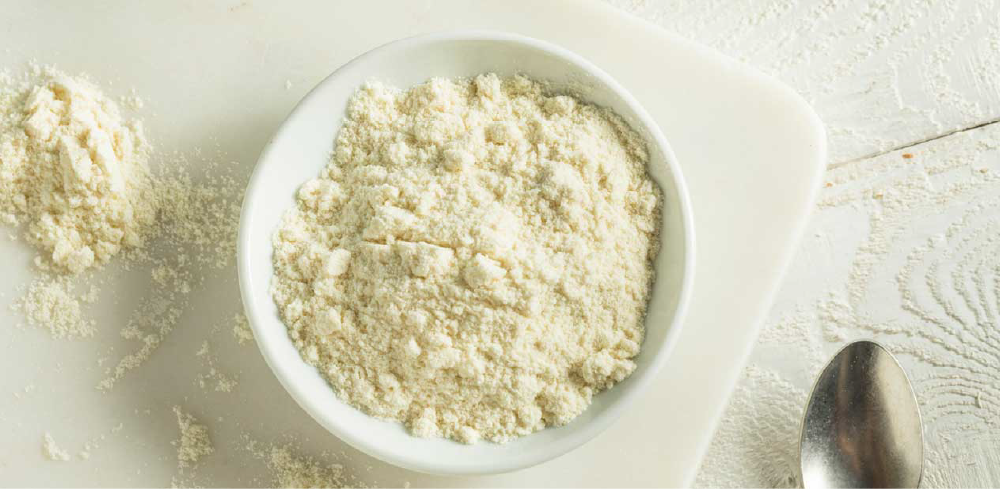
Whey protein has long been a must-have for those who want to build lean muscle, but the sheer volume of studies out now suggest that the benefits of a good whey supplement warrant the atten-tion of just about anyone in pursuit of excellent health.
Whey’s been shown to have a positive impact on so many diseases and disorders that it seems nearly miraculous. Test subjects managing conditions like stress, diabetes, high blood pressure, and much more have exhibited rapid improvement with the addition of a simple, high-quality shake. Research implies that whey can boost white blood cell count in patients with HIV, lift sero-tonin levels in those dealing with depression, and it’s even been recommended as a great addition to any anti-cancer diet.
What Is Whey?
First, we need a fundamental understanding of what whey is. Whey is derived from cow’s milk – it makes up approximately 20% of the protein found in milk, while casein accounts for the other 80%. Whey is the thin liquid that’s often discarded during the cheesemaking process. We know cheese to be a high-fat food, and whey, by comparison, is not. However, it does retain those es-sential vitamins and minerals during its separation from the casein.
Aside from fat content, we want the whey separated because the body doesn’t synthesize the pro-tein from casein as efficiently as it does when the protein comes from whey. That easy absorption into the bloodstream provides the support that basically makes up the entire reason you want to reach for a protein shake in the first place.
So if you’re looking to invest in a quality whey supplement, we’ve selected three key areas where you can look forward to the most measurable, immediate benefits backed by research.
Whey could be right for you if:
1. You want to manage a digestive disorder.
With digestive woes on the rise, it would be wise to consider whey. We’ve tackled this one first, since it seems counterintuitive to assert that a product derived from dairy could alleviate symp-toms of leaky gut, IBS, and Crohn’s, but the exclusion of casein is crucial here.
The results of one human study examining Crohn’s disease demonstrated an improvement in the permeability of the intestinal lining – and in some cases, a total remission of symptoms – after just two months of supplementing with whey. An animal study focused on the effect whey protein can have on chronic inflammatory bowel disease attributed such improvements to the amino acid pro-file found in the whey, particularly the threonine and cysteine content.
2. You want to eat more mindfully.
Satisfaction – another function of the amino acids found in whey protein. Researchers found that those who drank whey protein shakes an hour and a half before a meal ended up eating fewer calories. The aminos trigger an increased release of hormones like cholecystokinin, which make you feel satiated.
And if you find that you lose more body fat by sticking to a high-protein diet, whey is the way to go. Studies have shown that weight loss is more likely to occur on high-protein diets that rely on whey instead of meat, which comes with extra fat and calories and isn’t easily consumed before exercise.
3. You want to boost your immune system.
Here we come with more good news about the amino acids provided by whey protein. Good glu-tathione levels have a powerful antioxidant effect that protects you from oxidative stress and keeps your immune system from pulling the trigger on inflammatory responses. As a bonus, it aids in muscle recovery.
As mentioned above, whey is a fantastically stable source of cysteine, and it so happens that cys-teine is essential to building more glutathione. A poor diet and environmental factors can impede our ability to naturally create glutathione, so supplementing with whey can help bump your levels up. This is really important; glutathione deficiency has been observed in patients suffering from Alzheimer’s, diabetes, asthma, and much more. That single, antioxidant-supporting essential ami-no acid might be the very reason whey protein has developed a cure-all reputation.
Quality Matters
If any of the above has piqued your interest, you’re ready to choose a whey protein supplement that actually has the nutritional profile to deliver the benefits. Ideally, you want your whey to meet most – but preferably all – of this criteria:
- Grass-fed
- Low in added sugar
- Non-GMO
- Low in carbs and fat
- Whey concentrate ranked high on the ingredient list
Making a conscious decision in favor of higher-quality whey is good for much more than maximiz-ing your fitness efforts. Use it to strengthen your intestinal lining, keep colds to a minimum, the portions on your plate smaller, and to give your body the protein levels you need to stay active.
Relevant Links:
http://www.ncbi.nlm.nih.gov/pmc/articles/PMC3905294/
